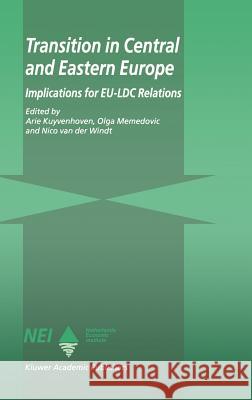Transition in Central and Eastern Europe: Implications for Eu-LDC Relations » książka
Transition in Central and Eastern Europe: Implications for Eu-LDC Relations
ISBN-13: 9780792338758 / Angielski / Twarda / 1995 / 320 str.
In less developed countries (LDCs) there is considerable concern that the developments in the Central and Eastern European Countries (CEECs) may lead to a more inward looking European Union (EU). As EU trade, foreign investment and aid flows are diverted from LDCs towards the CEECs, close neighbours of the EU, a new dimension would be added to 'fortress Europe'. This volume consists of 11 chapters by scholars from the EU, the CEECs and LDCs. Each paper is discussed in terms of its policy relevance by a policy maker as well as by an academic specializing in the field. In the opening chapter we aim to do justice to the discussion during the Workshop in Rotterdam in May 1994 at which preliminary versions of all chapters were presented. Edited versions of the interventions by the policy makers and experts are included as far as possible after the chapters. A summary of the discussion is presented in the concluding remarks by Rolf Langhammer. The opinions expressed in this volume are those of the authors and not necessarily of their organizations. The editors XXI Foreword I am glad the first meeting of this network is on the developing country dimension of pan-European integration, for two reasons. Firstly, politi- cal and economic liberalization in Central and Eastern Europe makes it possible, even necessary, to discuss such an issue.











